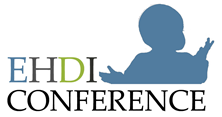| Presenter Information: |
| Presenter 1: |
Name: Katherine Rogers
Affiliation:
Katherine Rogers completed a BSc (Hons) in Psychology in 2004 and was awarded a Merit for her Masters of Research Methods in Psychology in 2008. Her interests include the emotional well-being of deaf people
and issues surrounding the use of standardized psychometric instruments with the Deaf population.
For the past three years, Katherine has been working as a research assistant in the Applied Social Research in Deafness group, under Social Work Education and Research, at The University of Manchester, UK. This has involved working on various projects, such as carrying out independent evaluation studies of projects provided by various
services, and being involved in a team which carried out a critical literature review on resilience and deaf children. Katherine is
intending to begin her internship at the National Technical Institute for the Deaf, Rochester Institute of Technology, USA, in February 2009.
|
|

